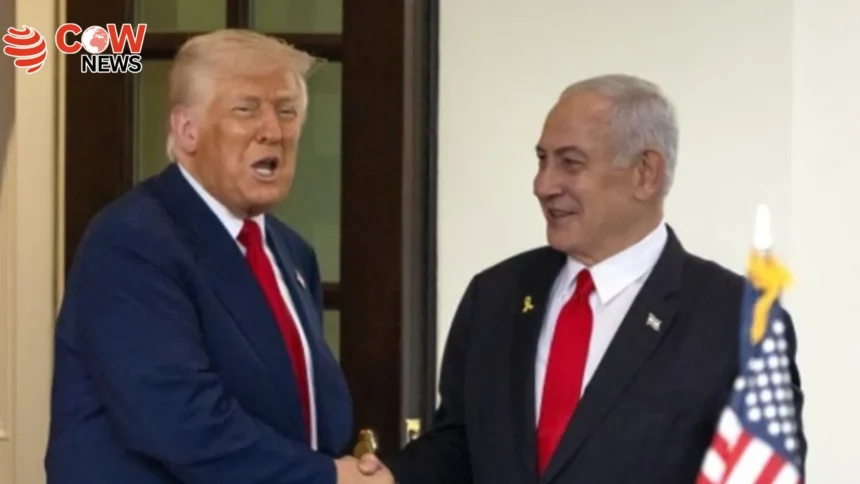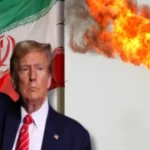Ghaza ( The COW News Digital )In a major geopolitical development, Israel and the United States have reportedly reached a preliminary agreement to end the ongoing Gaza conflict within two weeks, according to Israeli newspaper Israel Hayom. The agreement emerged from a high-level phone call between Israeli Prime Minister Benjamin Netanyahu and U.S. President Donald Trump, aimed at broadening the Abraham Accords and restructuring governance in Gaza.
According to sources cited by the paper, both leaders agreed on the urgent need to halt hostilities in Gaza and transition toward a post-war governance structure. The proposed plan would see the United Arab Emirates, Egypt, and two other unnamed Arab nations jointly establishing a temporary administrative authority in Gaza, replacing Hamas. As part of the deal, all hostages would be released, and Hamas leadership would be exiled.
While the plan signals a potential breakthrough, it is fraught with complex political obstacles. Several Arab nations have already stated they will not contribute to Gaza’s reconstruction without a significant role for the Palestinian Authority, which many see as essential to any future two-state solution. However, Prime Minister Netanyahu has consistently rejected any involvement by the Palestinian Authority in Gaza’s future governance.
On the other side, Hamas has repeatedly refused any proposal that includes the exile of its leadership, complicating any negotiated settlement. The phone call reportedly took place late Monday and included U.S. Secretary of State Marco Rubio and Israeli Strategic Affairs Minister Ron Dermer.
The plan also includes provisions for Gaza residents who wish to emigrate, offering resettlement opportunities in unnamed countries. In addition, it suggests normalization of diplomatic ties between Israel and nations such as Saudi Arabia and Syria, with more Muslim-majority countries expected to follow.
In exchange, Israel may publicly endorse a two-state solution—contingent on sweeping reforms within the Palestinian Authority. Simultaneously, the United States could recognize Israeli sovereignty over parts of the West Bank as part of the broader peace framework.
This agreement could trigger a major shift in Middle Eastern geopolitics, but the road ahead remains uncertain. Internal opposition within both Israeli and Palestinian factions, as well as differing priorities among Arab states, present significant hurdles.
The proposed plan comes on the heels of Iran’s recent breach of the ceasefire, which had prompted a strong reaction from President Trump. He also demanded the dismissal of ongoing corruption charges against Netanyahu—highlighting the complexity of political stakes involved.







